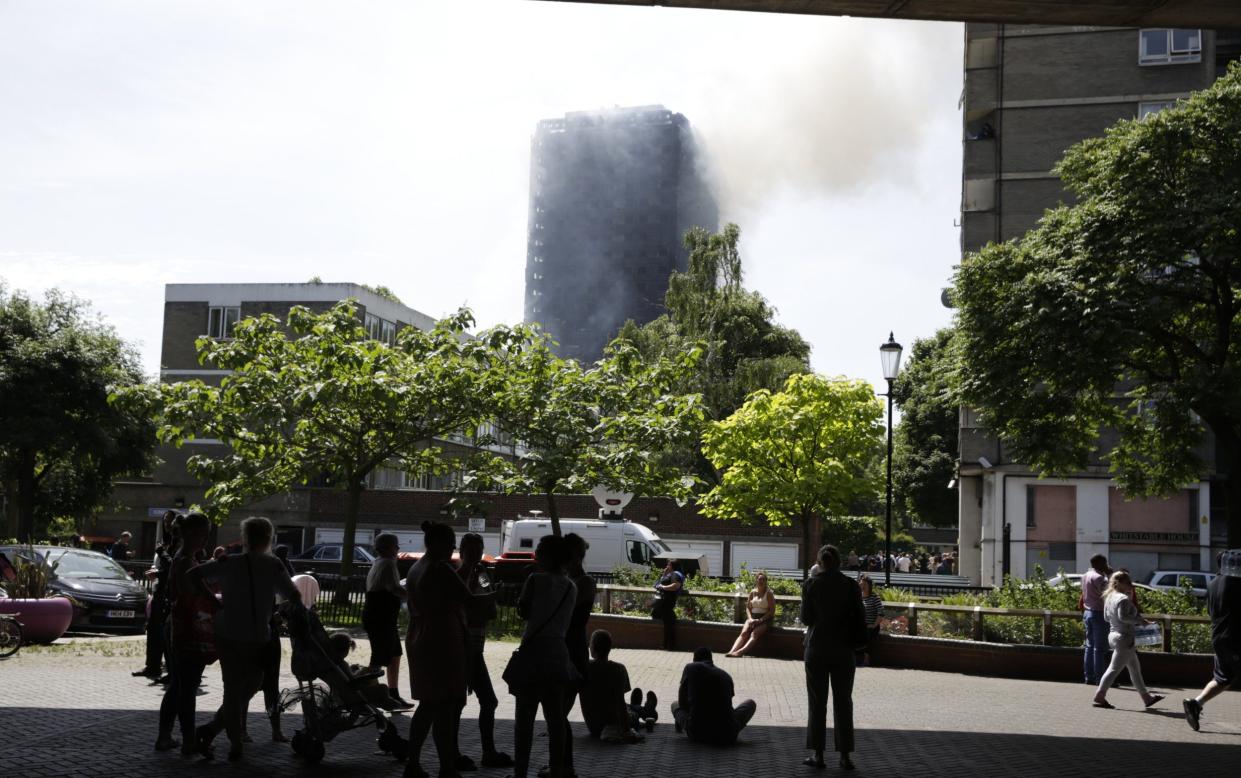The ghosts of Grenfell haunt this novel of middle-aged life and loss

- Oops!Something went wrong.Please try again later.
Diana Evans’s last novel, Ordinary People (2018), followed two black middle-class couples in contemporary London as they navigated the disillusionments of midlife. Michael and Melissa were trying to survive a loss of libido and Melissa’s panic at being stuck at home with two small children. Stephanie and Damian had to weather that ultimate blow to edginess, a move to Dorking. Would these marriages make it?
In A House for Alice, the question is answered as we meet the characters again in their late 40s, post-divorce. Michael is remarried, to the sexy singer Nicole, though having a new wife who “worships at his fountain” every night doesn’t stop him from yearning for the lost Eden of his old love affair with Melissa, and their former home (pointedly named 13 Paradise Row). Damian has struck out for a more exciting single existence, furnished only with a Basquiat print and a potted plant, leaving anger and confusion in his wake. Stephanie is distraught: their teenage daughter Avril is developing an eating disorder, which Evans describes in harrowing detail. Melissa, meanwhile, must cope not just with her son’s struggles with his racial identity but with her elderly mother Alice’s sudden desire to build herself a house in “the old lands” and return to Nigeria.
The relentless passing of time, and the meaning of home – its importance and fragility – are at the heart of A House for Alice. The novel begins with the sudden death in a freak fire of Melissa’s father Cornelius, a Yorkshireman with a passion for clocks whose violent rages used to terrorise his family until Alice and his daughters left him, one by one. Since then, Cornelius has lived alone in north-west London like “a ghost, faded into yesterday, his ticking house his only standing structure”, except for a weekly dinner with his estranged wife. That house burns down on the very night that Grenfell Tower goes up in flames. But death isn’t the end for Cornelius, whose spirit must pass through the fires of Purgatory before it can rest.
There was an intimation in Ordinary People that 13 Paradise Row was haunted, and Melissa’s breakdown a response not just to the shock of motherhood, but to supernatural forces. Evans resurrects this idea as Melissa is visited, again, by the past. At night, she sees “an outline of a figure standing at the end of the bed, a suggestion of flames around it”. Is it her father? Or the ghosts of Grenfell? Invoking Grenfell could have been catastrophic, but Evans does justice to the terror and pity of those deaths, "from shock, from smoke, from the final chime of inside clocks", as a hellish emblem of inescapable human suffering.
The houses of London are troubled by “voyeurs in the brickwork”, “passing shadows and unexplained creaks, the invisible histories that can never be erased”. For Avril, too, succumbing to anorexia, trying and failing to metabolise her parents’ split, home is “where the quiet scream started”. As Alice’s house in Benin City edges towards completion, these ghosts are confronted and partly exorcised. Perhaps Cornelius will be allowed a final redemptive supper, in another dimension, with the wife he brutalised and took for granted. Perhaps Michael and Melissa can “topple back into Paradise, another house, a different structure, and go on”.
The children – Avril, dwindling in the crosshairs of her parents’ divorce, and Melissa’s hyper-intelligent but vulnerable son Blake – are heartbreakingly well-drawn. So too, in a different register, are Nicole’s attempts to make the serious-minded Michael commit to her determined hedonism during a disastrous “Algarve Soul Weekender”, where they end up arguing while “on the TV opposite the bed a make-over show was transforming a girl into Jada Pinkett Smith… all of them crying and hugging at the success of this smothering of realness.”
In another tragicomic scene, a skittish therapist with a habit of oversharing urges Melissa to face the truth about her childhood, and her present. At every point, whether sad or funny, A House for Alice is compassionate and sharp. Its underlying message is clear: dissociation from your past, yourself, and your real loves is no way to live.
A House for Alice is published by Vintage at £18.99. To order your copy for £16.99, call 0844 871 1514 or visit Telegraph Books

